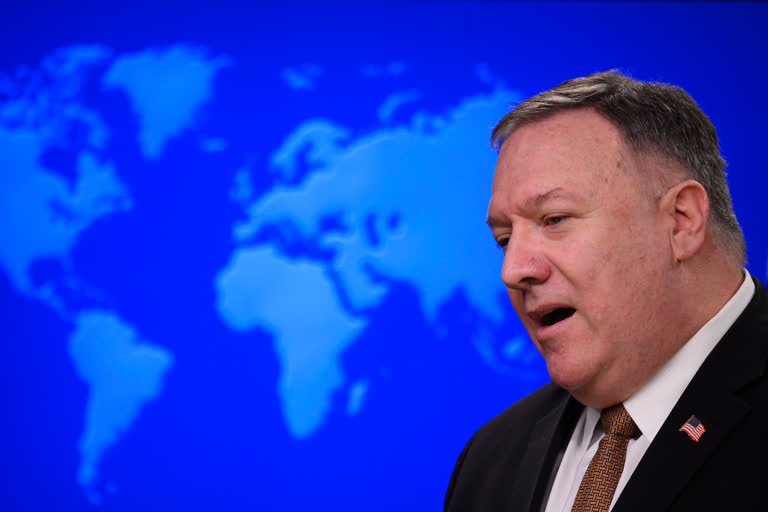Washington: US Secretary of State Mike Pompeo on Saturday mounted pressure on Pakistan by demanding justice for murdered American journalist Daniel Pearl, days after a court in Sindh province overturned the death sentence of the prime accused and top al-Qaeda leader Ahmed Omar Saeed Sheikh in the case.
Pompeo's response came after the Sindh High Court on Thursday found the 46-year-old British-born Sheikh guilty of the lesser charge of kidnapping and commuted his death sentence to seven years in prison.
Read also: Pak Minister played role in acquittal of Pearl case convict
Sheikh has been in jail for the past 18 years after being convicted in Pearl's murder in 2002 in the aftermath of the 9/11 terror attack.
Washington has termed the Pakistani court verdict an "affront" to the victims of terrorism everywhere.
Read also: COVID-19: US' fault lines may put the nation behind
The US can't forget Daniel Pearl, Pompeo said in a tweet. "We continue to honour his legacy as a courageous journalist and demand justice for his brutal murder."
In another tweet, the US National Security Council too condemned the Pakistani court verdict.
We condemn the Pakistani court's decision to overturn the sentence of those convicted of the gruesome murder of Wall Street Journal reporter Daniel Pearl and welcome the prosecutor's decision to appeal.
"The US is committed to pursuing justice in all cases of terrorism against American citizens," the Council said.
Senator Jim Risch, Chairman of the Senate Foreign Relations Committee, said that Pearl's kidnapping and brutal murder in 2002 began a new era of terrorist groups targeting westerners.
His family deserves justice, and I am deeply disappointed that the Pakistani Court has overturned his murderers' convictions, Risch said.
The overturning of the convictions for Daniel Pearl's murder is an affront to victims of terrorism everywhere, Alice Wells, Acting Assistant Secretary of State for South and Central Asia, said in a tweet on Friday.
Pearl, the 38-year-old WSJ's South Asia bureau chief, was abducted and beheaded while he was in Pakistan investigating a story on the alleged links between the country's powerful spy agency Inter-Services Intelligence (ISI) and al-Qaeda.
Sheikh, who was the mastermind behind the abduction and killing of Pearl, was arrested from Lahore in February 2002 and sentenced to death five months later by an anti-terrorism court.
The verdict on Thursday came more than a month after the Paris-based Financial Action Task Force warned Pakistan that stern action will be taken against it if the country fails to check the flow of money to terror groups like the Lashkar-e-Taiba (LeT), Jaish-e-Mohammed (JeM) among others.
The FATF, which supervises the effective implementation of legal, regulatory and operational measures for combating money laundering, terrorist financing, last year placed Pakistan on its "Grey List" of countries for failure to curb funnelling of funds to terror groups like the LeT and the JeM.
If not removed from the list by April end, Pakistan may move to a blacklist of countries such as Iran that face severe economic sanctions.
Amidst mounting pressure, Sindh province on Friday invoked the maintenance of public order to keep Sheikh in jail.
According to a notification issued by the Sindh home ministry, the release of Sheikh and his three associates could jeopardise the law and order situation in the province, thus necessitating their continued detention.
Pakistan Foreign Minister Shah Mehmood Qureshi said that he was surprised at the timing of the verdict. He added that the court order would be challenged at a higher court.
PTI



